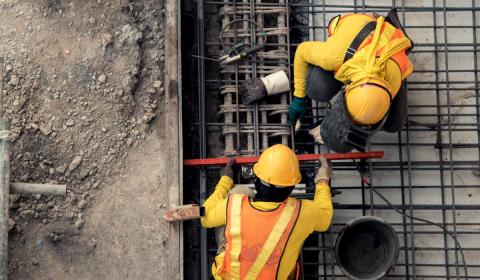Are you bidding on public or private projects? You need to provide solid guarantees, and that's where surety bonds come in. Still little-known or underestimated, surety bonds can make all the difference to your business development.
The advantage of surety bonding is that it replaces the financial deposit with a surety bond, which frees up funds and reassures the client.
The fact that a surety company has sufficient confidence in the contractor's financial situation, competence and integrity to guarantee performance of its commitments, and even payment of its debts, is a guarantee of solvency.
Obtaining a surety bond for a contractor also involves a qualification and accreditation process that can facilitate access to operating credit offered by banks.
Understanding Surety Bonds
A surety bond is an agreement under which an insurer undertakes, with respect to a third party (the beneficiary or client), to ensure that the contractor performs the work and fulfills his obligations as described in the contract.
Unlike an insurance contract, a surety bond always involves three parties: the surety (usually an insurance company), the beneficiary and the principal (the contractor).
The bonded contractor has greater leeway to negotiate better prices and more flexible credit terms with subcontractors and suppliers, since he offers them a payment guarantee.
Compared with other forms of guarantee, such as certified cheques or bank letters, surety bonds enable contractors to adjust bid amounts right up to the last minute. It's a development tool that gives access to market sectors that are usually reserved.
In other words, in the event of a problem, the surety will step in to ensure that your commitments are honored. This strengthens your company's credibility and helps you win major contracts.
The main types of construction bonds
What are the different types of contract bonds?
- Bid bond: Guarantee paid to the client if the bidder refuses to sign the contract, covering the difference in cost (often up to 10%).
- Letter of consent or letter of undertaking: Undertaking by the surety to provide the necessary guarantees if the bid is accepted.
- Performance bond: Guarantee that the contractor will complete the project in accordance with the terms of the contract.
- Labor and material bond: Guarantee of payment to subcontractors and suppliers for work and materials supplied.
- Maintenance bond: Guarantee that completed work will be maintained in good condition, excluding normal wear and tears.
Surety bonds adapted to other contexts (commercial surety bonds)
Depending on your sector or activities, other types of surety bonds may be required:
- Required to obtain a license or permit to carry on a commercial activity.
- Protect the consumer or beneficiary if the merchant (entrepreneur or principal) fails to meet his or her financial and legal obligations.
What types of commercial surety bonds are there?
- License and permit bonds: Mandatory for various activities (e.g. RBQ, Residential construction warranty (RCW), construction contractors, private schools, security agencies, employment agencies, environmental management).
- Customs bonds: Guarantee payment of customs duties and facilitate import/export (e.g. temporary imports, bonded warehouses, duty-free stores).
- Excise bonds: Target deferred tax payments on specific products (e.g. tobacco, alcohol, gasoline).
- Financial guarantee bonds: secure the financial commitments of distributors, suppliers and service station operators.
- Fiduciary bonds (guardians and trustees): Protect the interests of people under guardianship or curatorship, under judicial supervision.
- Agricultural and food market bonds: Cover transactions in the agricultural and food sectors (e.g. cattle, milk, lobster).
Why do business with a specialized consultant like Lussier?
Understanding project owners' requirements, building a solid file with the insurer, evaluating your bonding capacity: all this requires specialized expertise. As a surety bond advisor, Lussier is with you every step of the way.
Our experts will help you:
- Identify the appropriate guarantees for your projects;
- Prepare the required documents strategically to maximize your chances of approval;
- Save time and avoid delays due to incomplete or misdirected applications;
- Benefit from personalized advice to support your company's growth.
When you do business with Lussier, you benefit from a committed partner who understands your issues, speaks your language and acts in your best interests. We act as an extension of your team, enabling you to move forward with confidence.
In conclusion
Bonding is much more than an administrative requirement: it's a risk management and strategic development tool. It demonstrates your company's solidity and reliability, while opening doors to major projects. By surrounding yourself with an experienced advisor like Lussier, you're choosing peace of mind and performance.
To get started or optimize your bonding file, contact our specialized team:
For commercial bonds: caution.commercial@lussier.co
For contracts: conseillers-cautionnement@lussier.co




